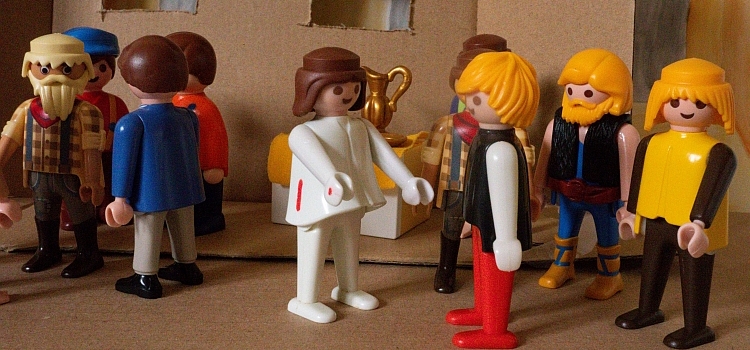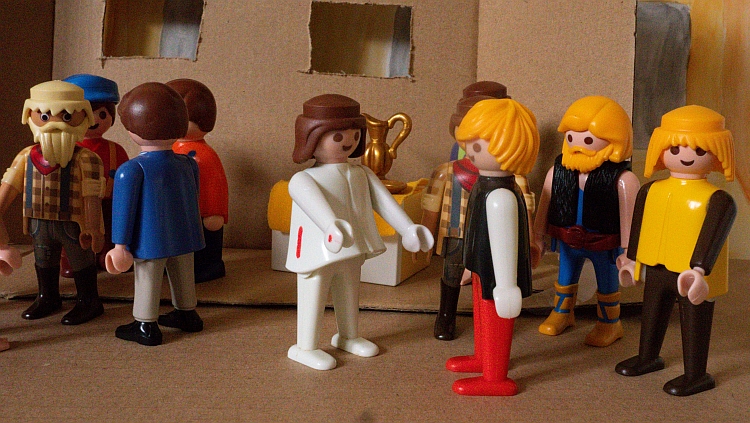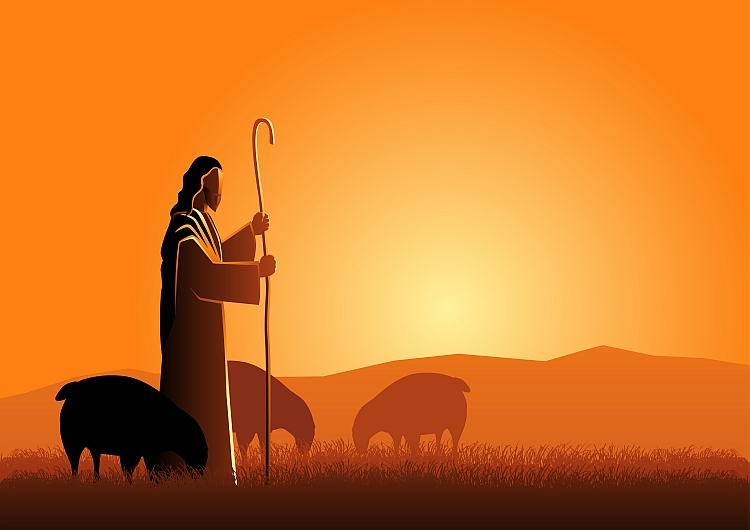
Hello everyone,
Welcome to the latest issue of our church newsletter. I hope you are all keeping well and coping as best you can with the current restrictions. Our newsletter will continue to be sent out regularly to help continue to maintain contact and a sense of community while life continues to be restricted. You can find previous issues of the newsletter here. We would love to hear from you and are looking for uplifting and encouraging content to share in future issues of this newsletter. If you have any ideas or content that we can share, please do email them to Louise (publicity@christchurchuxbridge.org.uk)
We start with our opening prayer:
Risen Lord Jesus,
hear our prayers for all who mourn
as they remember loved ones lost to this pandemic.
Hear our prayers for livelihoods destroyed and hopes devastated.
Hear our prayers for all continuing to sustain and support us
even as we begin to taste again so much we have had to wait for.
Bless the nations with a renewing spirit of generosity,
that vaccine and support might reach the poorest and most marginalised.
We pray in your name. Amen.
Rev’d Neil Thorogood
(Taken from URC Daily Devotions prayers in a pandemic)
Reflection from 18 April: Easter – the big story
Readings: Luke 24: 36b – 48 and Acts 3: 12-19
Easter is a big story.
- Too big to be confined to one day.
- Too big to be confined to a small group of people.
- Too big to be confined to human understanding.
People who think it’s all over at the end of Easter Sunday miss out. There is more to this than the discovery of an empty tomb and the very first encounters with the risen Jesus.
Last Sunday’s set gospel reading gives an account of two occasions when the disciples were meeting behind locked doors but, despite this, encountered the risen Jesus among them. Despite their best efforts to create barriers to control who could be present with them, the risen Jesus breaches their defences and best laid plans and is discovered to be there with them where they are; sending out a message that he was not someone who had been resuscitated.
The second part of that reading with its invitation to Thomas to see his wounded hands and touch his wounded side sends out a message that this was not someone else or someone who had not really suffered life ending physical injuries.
Today’s reading tells of us of the disciples encountering the risen Jesus as someone who eats fish sending out a message that he is not a ghost either.
The risen Christ is someone who defies our human attempts to rationalise and categorise. His risen nature can only be described as a mystery: a work of God that goes well beyond our experience and expectation in its nature and effect.
The risen Christ not only defies our human attempts to rationalise and categorise what his first disciples experienced 2,000 years ago; our readings today also send out a message that this transformed life was not just something for then but for all time, not just something for one person or even those first disciples but for all people including us.
Our reading from Luke tells us that he opened his disciples minds so that “they could understand the Scriptures” (Luke 24:45) (NRSV). This opening of minds begins with them, but the idea is that it is not exclusive to them alone. They are told to pass on the news of what they have witnessed starting in Jerusalem but then to be proclaimed “to all nations” (Luke 24:47) (NRSV). The good news of resurrection and what it means is not just for the few in one place and time but for all people whoever they are, wherever they are, whenever they are.
The passage says that the spreading of this good news starts in Jerusalem. That is important. Jerusalem is the place where everything went so badly wrong with Jesus arrested, tortured, condemned to death and crucified. It is the place where the two walking to Emmaus on Easter Sunday Eve are trying to get away from as we so often try to get away from the place where things have gone so disastrously wrong for us. Definitely there is a time to turn around from what has been and is not the future as Mary Magdalene turned around from the tomb and saw the risen Jesus. But the process of turning round our lives has to begin at the place where it all went wrong because it is the brokenness of our past that forms the hard core that is the foundation of our future.
Jerusalem is also where the verses we read in the Acts reading are set. It is the place where a lame beggar outside the Temple discovers a new life beginning for him. It is there that people who witness the beggar’s transformed life are the audience for Peter’s speech part of which is in our reading from Acts.
The beggar seeks some money to get through the day but if he had received that it would only enable him to survive a bit longer in his current condition. What he receives through Peter & John is not that but something much more valuable: a completely new quality of life.
In the earlier part of the passage we are told that his response to the new life he now had was to go into the Temple courts “walking and jumping and praising God” (Acts 3:8) (NRSV). It was the visible change in him that opened the possibility of people, at least some of whom may have been implicated in the call for Jesus to be crucified, to be receptive to Peter’s message that they could enjoy a new quality of life too, but it would require them to make a change from their old way of living.
The lame beggar represents us. The people who witness the transformation in his life represent us. John and Peter represent us. At different times in our lives; we will have all of these different roles. But whichever role we are in; it all begins at the same place. The place where it all goes wrong and we have the opportunity to acknowledge that before moving on.
If people of our day are going to be receptive to an offer of new life for them; they will first want to see what is changed in us. That change becomes visible when people can see where we were and can see where we are now and where we are going.
We may or may not receive a cure for our physical ills. For our generation, it is a distraction to think there is always a link between the new life God offers us and our physical wellbeing. We are told these stories because the thinking at the time was that physical illness or disability was caused by a sinful life. Sometimes there may be a direct link between the way we live and our state of physical or mental health. Sometimes our physical and mental health does have a direct link to substance abuse and/or a stressful home, financial or work environment or something else. Sometimes it has nothing to do with that.
We read about what happened on the third day but then we go on to read about what happened on the subsequent days all of which are an essential part of the Easter story. The story does not end on that first day or even on Ascension Day. It is a story that goes on through the Acts of the Apostles and the Epistles and it continues today with us.
In our Gospel reading the first disciples are comparing notes of their individual experiences of encountering the risen Jesus. Two of them have returned from Emmaus where they have encountered his risen presence. He has appeared to Simon Peter. Now all the group experience him with them offering a word of peace.
Times of personal experience of the risen Christ change us from people who hear the stories of others and try to work out whether we can really believe them to people who know from our own experience that this is real.
Easter is a big story. So big we are part of it. When we know that for ourselves then we cannot be the same again. Our life changes forever and that, in turn, opens the possibility of the lives of those whose lives our lives touch changing too; starting, but not finishing, in the place where it all went wrong.
Richard Reid
Our readings for this week
John 10:11-18 (NIV)
11 ‘I am the good shepherd. The good shepherd lays down his life for the sheep. 12 The hired hand is not the shepherd and does not own the sheep. So when he sees the wolf coming, he abandons the sheep and runs away. Then the wolf attacks the flock and scatters it. 13 The man runs away because he is a hired hand and cares nothing for the sheep.
14 ‘I am the good shepherd; I know my sheep and my sheep know me – 15 just as the Father knows me and I know the Father – and I lay down my life for the sheep. 16 I have other sheep that are not of this sheepfold. I must bring them also. They too will listen to my voice, and there shall be one flock and one shepherd. 17 The reason my Father loves me is that I lay down my life – only to take it up again. 18 No one takes it from me, but I lay it down of my own accord. I have authority to lay it down and authority to take it up again. This command I received from my Father.’
Further readings from the lectionary this week are as follows:
- Acts 4:5-12
- Psalm 23
- 1 John 3:16-24
Our worship
We meet at 11am for our Sunday services, which are also live-streamed on our Facebook page. If you wish to view our services online, you can find them at www.facebook.com/christchurchuxbridge. You do not have to be a Facebook user to watch them – our services are publicly viewable. You can also view a recent service on our church website. Our service this week will be led by members of the worship group.
We meet via Zoom immediately after the service for a virtual ‘coffee and chat’. The link for this will be shared in the comments on Facebook during the service.
If you are unable to join us in person or online for our Sunday services, but would like to receive a recording of them on a memory stick to watch at home, please let us know.
Safeguarding
Do you know what safeguarding is? Would you know what to do if you had a concern?
Safeguarding is defined as the action that is taken to promote the welfare of children and vulnerable adults and protect them from harm. Safeguarding means protecting children and vulnerable adults from abuse and maltreatment, preventing harm to their mental and physical health or development. and ensuring they are given safe and effective care. This covers financial and sexual abuse, human trafficking and modern slavery.
If you volunteer with any group that has children (under 18s) and/or vulnerable adults as part of that group you should have training and a DBS check.
At Christ Church we have a Safeguarding team consisting of Joanne Mackin and Hazel Little who are assisted by Cathy Simpson. They ensure any volunteers from Christ Church have the training and DBS checks they need, ensure our policies and procedures are in place to promote safeguarding and ensure that if a concern or event happens we can deal with it well. The team is in turn supported at Circuit, Synod and District levels; these have the staff to assist us if needed.
If you have a concern please contact one of the team and we can listen and agree what action is needed. There is a mantra you can use: ‘Does it look right, does it sound right and does it feel right?’ If the answer to that is NO, then get in touch. The contact details can be found here and are on notice boards around the buildings.
Even if you do not do a specific role that needs training you are welcome to ask to come on our Foundation or Advanced Safeguarding course. This is currently happening online but will also be available live when Covid conditions allow. Priority is currently being given to those who need the training for their role as we clear the Covid backlog.
Joanne Mackin

Daffodils
I wander’d lonely as a cloud
That floats on high o’er vales and hills,
When all at once I saw a crowd,
A host of golden daffodils,
Beside the lake, beneath the trees
Fluttering and dancing in the breeze.Continuous as the stars that shine
And twinkle on the milky way,
They stretch’d in never-ending line
Along the margin of a bay:
Ten thousand saw I at a glance
Tossing their heads in sprightly dance.The waves beside them danced, but they
Out-did the sparkling waves in glee: –
A poet could not but be gay
In such a jocund company!
I gazed – and gazed – but little thought
What wealth the show to me had brought.For oft, when on my couch I lie
In vacant or in pensive mood,
They flash upon that inward eye
Which is the bliss of solitude;
And then my heart with pleasure fills
And dances with the daffodils.
William Wordsworth
Dr Oliver Tearle writes: On 15 April 1802, Wordsworth and his sister Dorothy were walking around Glencoyne Bay in Ullswater when they came upon a ‘long belt’ of daffodils, as Dorothy put it memorably in her journal. Dorothy Wordsworth wrote of the encounter with the daffodils: ‘we saw a few daffodils close to the water side, we fancied that the lake had floated the seed ashore & that the little colony had so sprung up – But as we went along there were more & yet more & at last under the boughs of the trees, we saw that there was a long belt of them along the shore, about the breadth of a country turnpike road. I never saw daffodils so beautiful they grew among the mossy stones about & about them, some rested their heads upon these stones as on a pillow for weariness & the rest tossed and reeled and danced & seemed as if they verily laughed with the wind that blew upon them over the Lake, they looked so gay ever dancing ever changing.’ The influence of this passage from Dorothy’s journal can be seen in Wordsworth’s poem, which he did not write until at least two years after this, in 1804 (the poem was published in 1807, but whether Wordsworth wrote the poem in 1804 or 1807 or at some point in between we cannot say for sure).
Brian Moere
Reminiscences of an organist: Part 2 – RCM and Cambridge
My three years at the RCM were the happiest days of my life. I was fortunate in finding ideal “digs” at an address in Kensington next to Olympia. These digs were home to musicians and actors and the elderly proprietress was Ms. Nellie Lowings. I quickly found a nearby church were I could practice on the organ in return for playing for Sunday School and other occasional services. Sampling the culinary delights of London in the company of fellow students lives long in my memory. I remember being introduced to Chinese food and curries, all of which seemed very exotic to a lad brought up on bangers and mash. Lessons at the RCM proceeded well and George Thalben-Ball very kindly encouraged me to give recitals at both the Temple Church and Birmingham Town Hall where he was resident organist.
After two years at the RCM I became organ scholar at Pembroke College Cambridge. Aside from playing for chapel services and attending lectures I was becoming interested in modern jazz. In my final year at Cambridge I entered a competition organised by Down Beat magazine for arrangers which happily resulted in my winning a scholarship to further my studies at Berklee School of Music in Boston, Massachusetts. And so it was that the autumn of 1962 saw me relocating to the USA where the next chapter in my life begins.
Stephen Duro
Children’s Corner

Praying for other churches
This week we hold the following churches in our prayers:
- Ruislip Manor Methodist
- Holy Trinity, Perivale (URC/CofE)
Closing prayer
Be the waters quiet, and the pastures green,
be there with us, Good Shepherd.
Be the valleys dark and filled with foes,
wherever we are, wherever we go;
be there with us, Good Shepherd.
Amen.
(Taken from Roots)


